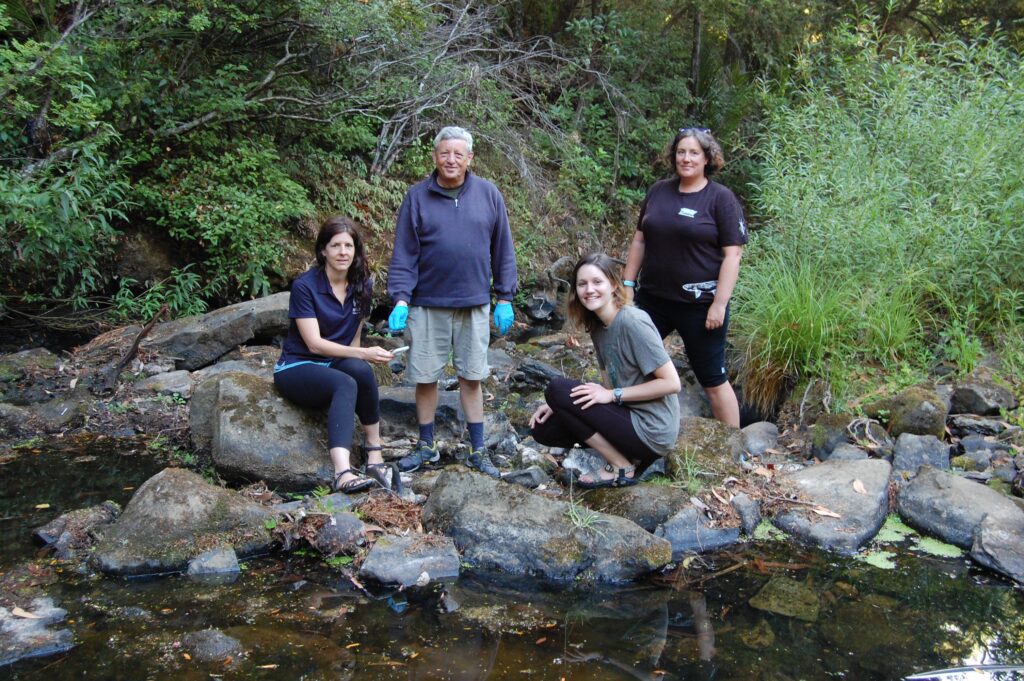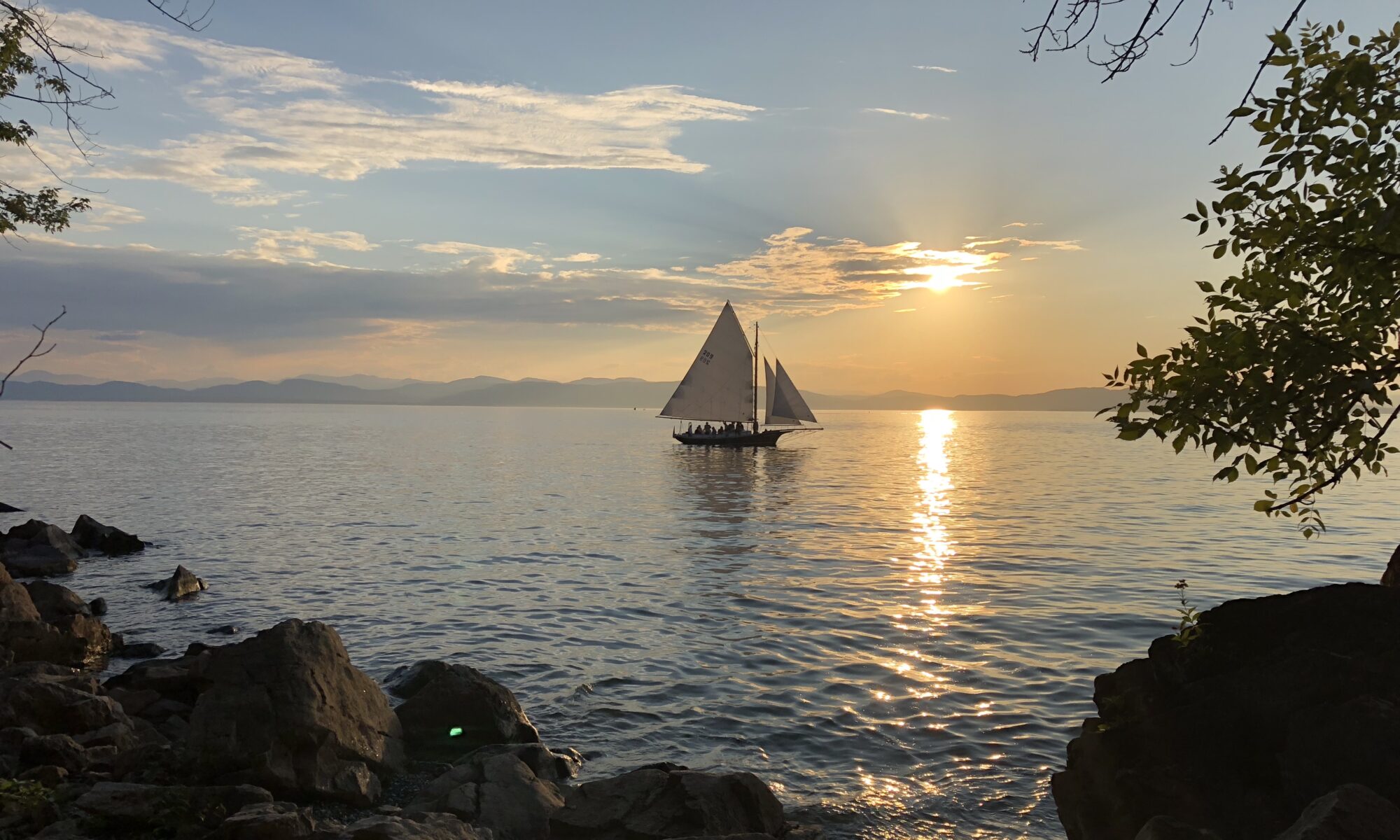All of the WESP Lab graduate students have exciting happenings related to their research right now.
Kristin Raub is due many congratulations, as she was recently named as one of two Thomas J. Votta scholarship winners for the 2019-2020 academic year at the University of Vermont. The scholarship is awarded to graduate students in the Rubenstein School of Environment and Natural Resources, the College of Engineering and Mathematics or the Grossman School of Business who seek to make a difference in “solving environmental problems and using Environmental Best Practices” to meet their goals – much like Thomas J. Votta had done in his life and career before his untimely death in 2009. Kristin’s research focuses on improving coastal resilience of communities by bringing together the food, water and energy sectors in preparedness planning and response. Learn about more her research with the following paper, which will become the first chapter of her dissertation: Raub, K. B. (2019). Coastal Adaptation to Sea Level Rise: Effects of Residential Proximity to the Coast, Climate Change Perceptions, and Attitudes Toward Government for Valuing Ecosystem Outcomes.
Kristin is also competing in the University of Vermont’s inaugural Three Minute Thesis competition. This global competition is for doctoral students who have passed their comprehensive exams. In the competition, they must share how their research is significant with a non-technical audience in just three minutes. There are two preliminary rounds at UVM. The first is March 16, 2020 at 7:00 PM in the Frank Livak Ballroom of the Davis Center. The second is March 19, 2020 also at 7:00 PM in the same location. The final round is scheduled for Friday, March 27, 2020 at 7:00 PM in the Sugar Maple Ballroom of the Davis Center on the UVM campus. Come learn from (and cheer for) her and her fellow competitors!
Rachel just returned from a research trip in New Zealand, where she worked with our partner, Dr. Amanda Valois (@what_fish_eat), a Freshwater Scientist with the National Institute of Water and Atmospheric Research (@NIWA_NZ), and volunteers from a variety of volunteer steam monitoring programs on both the North and South Islands. Rachel was implementing the interview phase of her thesis research, following up on surveys done this past summer and fall. Her work was featured in a news article in Local Matters, a news agency on New Zealand’s North Island.

In addition to this trip to New Zealand, Rachel has been busy with travel this fall and winter to conduct interviews with volunteers from all three of our project partners for her thesis research. She already visited volunteers in British Columbia, Canada, traveling with our partners from @LivingLakesCanada, Kat Hartwig and Rory Gallaugher, to meet with volunteers from across the province. Earlier, she traveled to several Mid-Atlantic states in the United States to meet with volunteers who have connections with our partner, Julie Vastine and the Dickinson College ALLARM program (@ALLARMWater). Rachel is anticipating defending her thesis in early May.
Speaking of defending, Jason Scott will be defending his master’s project on Friday, March 20. For anyone interested in see his presentation, that will take place in Aiken Center Room 311 on the UVM campus, and we have set up a Zoom webinar for those who would like to join remotely. That information follows his defense proposal abstract below.
Lake Champlain faces numerous complex environmental threats that do not have simple solutions. Oil and other types of hazardous materials spills are among those threats that continue to attract the attention of agencies and organizations trusted to protect the lake. There is significant transportation infrastructure that exists in the region that, in the event of an accident, could lead to spills and extensive damage to natural resources. This project is intended to strengthen the ability of marina owners and first responders in the Lake Champlain Basin to prepare for and respond to oil and hazardous material spills by facilitating spill response training and providing important educational resources. The project is also intended to bolster federal, state and local spill planning efforts through development of the Physical Description of the Lake, which will serve as an appendix to the Multi- Agency Contingency Plan for Emergency Environmental Incidents in the Lake Champlain Region. Finally, the project is intended to increase awareness of available scientific information and expertise for spill response professionals through the development of a database of academic and scientific resources to support readiness for environmental incidents. The products generated for this project are intended to be useful for contingency planners, response personnel and resource managers engaged in spill response. The lake crosses international, federal and state jurisdictional boundaries which complicates preparedness and response in the event of a spill. This project is intended to help to unite the scientific and spill response communities in the Champlain Valley.
To join Jason’s defense via Zoom Meeting use the following link and/or dial-in information:
https://zoom.us/j/433439369
Meeting ID: 433 439 369
One tap mobile +16468769923,,433439369# US (New York) +16699006833,,433439369# US (San Jose)
Dial by your location
+1 646 876 9923 US (New York)
+1 669 900 6833 US (San Jose)
Meeting ID: 433 439 369
Find your local number: https://zoom.us/u/acGY8VrO7c
